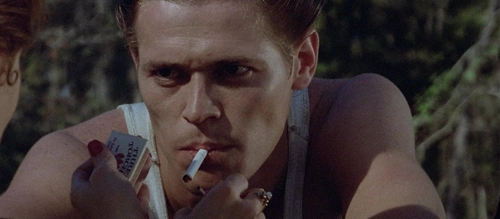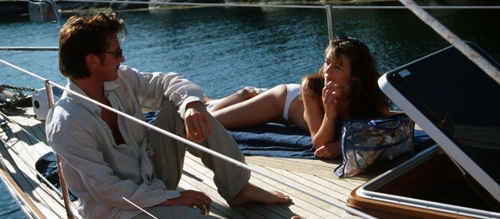Kathryn Bigelow Movies Ranked
There are some directors who will be remembered as fundamentally important to cinema. In the anglophonic cinema of the west, Kathryn Bigelow must be regarded as one of them. From her first film in 1981 to her most recent in 2017, she has consistently released films which are both engaging and entertaining, fun to watch but have some heft behind them. As the first female solo director to win Best Director at the Oscars (it only took them until the 82nd Oscars to do so, which obviously says a lot), her name will come up time and time again in the history books. It should be acknowledged that this is a fairly westernised view of awards success, and other parts in the world may look to other awards ceremonies for their crowning glories (South Korea with the Grand Bell and Blue Dragon Awards, for example, and film festivals such as Cannes and Berlin have their own prestigious awards), but it is nevertheless a remarkable achievement in beginning, however slowly, to break down some barriers.
Born November 27th, 1951, and raised in San Carlos, California, Kathryn Bigelow originally began life as a painter, earning a degree in Fine Arts in 1972. Eventually however, after some time working with renowned composer Philip Glass (who, amongst other classical works, wrote the score for Candyman (1990)), she turned to filmmaking, earning her Masters from Columbia. There is an irony in one of her professors being Andrew Sarris (one of the leading exponents of auteur theory), as this particular branch of film criticism has been attacked over the years for being very male-centric, and Bigelow is certainly a director to have done her part at taking down that idea.
Following her short film in 1978, The Set-Up, Bigelow would go on to direct her first feature a few years later. Ever since then, she hasn’t gone for more than six years without releasing a film. Her ten directorial features have attracted some of the biggest names in the business, including Jeremy Renner, Willem Dafoe, Jamie Lee Curtis, Keanu Reeves, John Boyega, Harrison Ford, Anthony Mackie (twice), and Jessica Chastain. In honour of her groundbreaking work, The Film Magazine ranks the trailblazer’s feature films from worst to best.
Follow @thefilmagazine on X (Twitter).
10. The Loveless (1981)

The Loveless was Kathryn Bigelow’s debut (co-directed and co-written with Monty Montgomery), and a first leading role for everyone’s favourite Green Goblin, Willem Dafoe. A film of leather bikers, punk music, and small-town sensibilities, it sees Dafoe’s Vance riding into town with his small gang of riders, staying in this town in the middle of nowhere as one of them needs their bike fixed. He ends up involved with a diner owner’s daughter, and it’s always going to end only one way.
The Loveless shows many hallmarks of a directorial debut; a simple storyline, actors that aren’t always the best, a smaller budget, an actor who also writes the soundtrack for the film. Still, despite these limitations, Bigelow’s command of the camera is apparent. Everything is controlled, every movement determined and thought through. Whereas many low budget films are simple point-and-shoot affairs, this one is choreographed and planned.
It’s a slower paced film, with not much going on for much of the runtime, but it still nicely looks at small-town youth culture when the world was still riding the crest of leather and punk rebellion. A solemn, melancholy ending caps off the film nicely with a haunting denouement. Just which parts were purely Bigelow, purely Montgomery, or a combination between the two is impossible to tell, but the end result still shows off a director finding her feet with promise of a slumbering giant to come.
Recommended for you: Jane Campion Movies Ranked
9. The Weight of Water (2000)

Based on the novel of the same name by Anita Shreve, this half modern drama, half historical crime mystery, on the surface has a lot going for it. You’ve got serious talent behind it in names such as Sean Penn and Ciaran Hinds. You’ve got beautiful visuals from the combined powers of Bigelow’s direction and the cinematography of Adrian Biddle. It’s based off an existing property. There are murder mystery elements. Surely this should be a hit.
The film, unfortunately, has an incredible issue in two timelines that never satisfactorily meet up. The historical side of proceedings is undoubtedly the more interesting of the two stories, the modern day events of a strained marriage whilst trying to uncover what truly happened back then more of a framing device which goes and sticks its nose into where it doesn’t belong. There are attempts to tie the two together but it never really holds water (pun intended), and one is left with the overall impression that there are deep structural issues which hold the film back from the page, before we shoot a single second of footage.
It looks gorgeous, it’s decently acted (even if the characters themselves are underwhelming) and it feels like there should be something there. The trouble is that there isn’t anything really interesting to work with or be remembered for.

